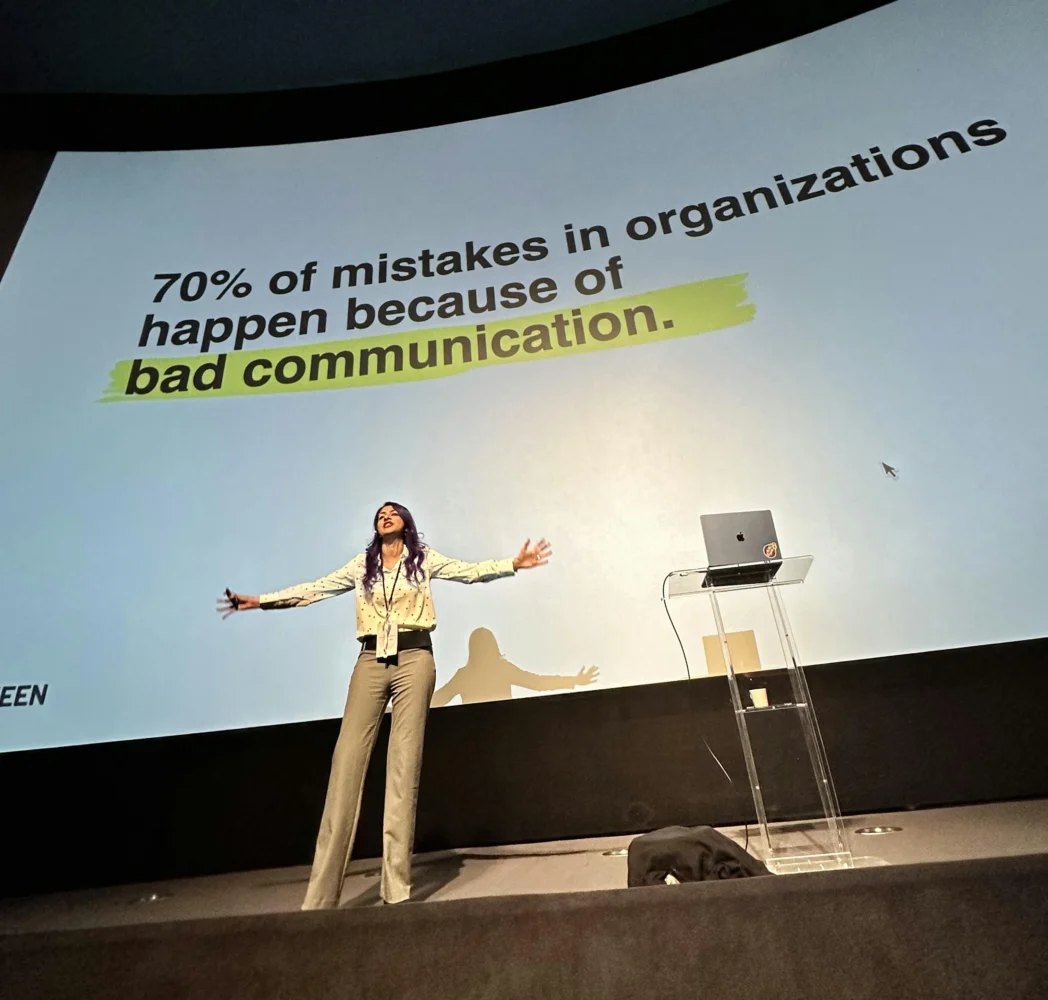I was on stage last month in Berlin at the Women in Tech conference.
And after my talk, I got an interesting question:

“Nausheen – is it better to be smart or simple when you speak?”
This was asked by a young female engineer who was working at a big tech company.
She gave me some more background:
She was a proponent of simplifying or “dumbing things down” for people so that everyone understood what she said.
But she was given the feedback that her communication was “too simple”.
She wasn’t being seen as an insider because she refused to use jargon.
She wasn’t being seen as an authority because her expertise didn’t come through when she used terms that were too simple.
But I saw that her real problem was something deeper:
She wasn’t connecting with her audience when she spoke.
“Jargon” in itself isn’t bad.
It’s when you use jargon to confuse people – that’s bad.
But when you’re speaking to a technical or insider audience who doesn’t just know the jargon but expects it, then you can by all means use “jargon”.
In this case – it won’t be jargon.
It’ll be regular vocabulary for your audience.
This is the key to connecting with your audience:
You have to meet them where they are.
The question isn’t – should you be “simple” or “smart” when you speak?
To be seen as an expert, you need to speak to the audience in their language.
If you can master connecting with the audience, you can master being memorable.

